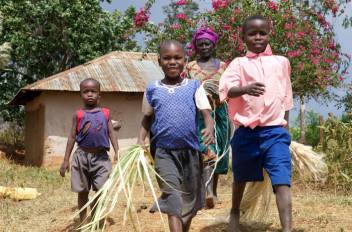 At the end of February in Chad, Africa Member States launched a Common Africa Position (CAP) on the post-2015 agenda.
At the end of February in Chad, Africa Member States launched a Common Africa Position (CAP) on the post-2015 agenda.
The CAP recognised and put more emphasis on: “The need to address the unfinished business of the MDGs and respond to the emerging issues and gaps in implementation, particularly with regard to data collection and monitoring.”
Additionally it recognised the demographic changes and increasing ageing populations in Africa and proposed interventions to enable older people to improve their lives.
Addressing ageing in Africa
Key areas that the CAP addressed with regards to ageing issues included:
- The value of promoting job creation and expanding fiscal space for development financing, including social protection programmes and eliminating poverty.
- Support for universal, equitable access to quality healthcare for all and the reduction of communicable and non-communicable diseases, including mental health.
- The empowerment of all people, gender equality and empowering women.
- Improved data collection and monitoring.
- The protection of the human rights of all citizens in order to ensure their meaningful participation in society and: “Ensure equality and access to justice and information for all, as well as the protection of the rights of minorities and people living in vulnerable situations, including children, women, the elderly, people with disabilities….for social sustainability by ensuring the pre-eminence of justice and rule of law.”
This shows that the investment in raising awareness and advocacy regarding older people’s issues is beginning to bear fruits, with a big role in this played by our network of ageing organisations.
Include older people in policies, strategies and programmes
With the increase in ageing populations and the steepest growth in lower- and middle-income countries (the majority of African countries are in these categories) deliberate and coherent action must be taken to ensure the wellbeing of older people. The HelpAge network will continue lobbying and advocating for older people to be included in policies, strategies and programmes.
We would like government and development partners to promote:
- A life course perspective to ensure people of all ages can be productive throughout their entire life. And that where they need support, they receive it.
- The importance of all data to be disaggregated by age, disability and sex to ensure that the ambition of “leaving no one behind” is realised. Disaggregated population data projections, scenarios and analyses are necessary to chart progress and achieve goals and polices for both current and future generations. As a result Africa Member States need to commit to including older women and men in surveys, to fully analyse data by age, to report data disaggregated by age and sex and to use this data to inform policy changes and interventions to meet the needs of ageing populations.
- Increase resource allocation on ageing related developments (which for a long time has been under resourced) so that it meets the increasing needs of ageing population.
This will ensure that the new post-2015 framework, policies, strategies and programmes support societies of all ages.
We urge all the HelpAge Network members and ageing organisations to unite in providing the necessary support to Member States and development partners to ensure this ambition is realised.
Find out more about our work to ensure older people are included in the post-2015 framework.
